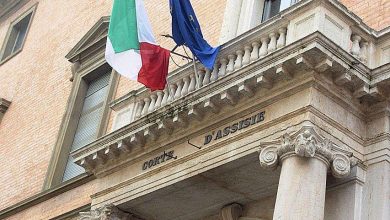
We must not forget that even a decrease in quality and safety can become a cost. The attention of the pharmacist will have to be increasingly aimed at the problems of the individual patient and of the individual drug therapy
Wednesday, 15 October 2014 – Pharmacist33
 Realize the complexity of the economic and financial context of the health system and the evolutionary trends of the profession also grappling with the world of medical devices, increasingly guide the attention of the pharmacist to the problems of the individual patient and of the individual drug therapy, encourage a process of integration with all the figures and enhance the role in terms of rationalization of expenditure and quality and safety at all levels of health care.
Realize the complexity of the economic and financial context of the health system and the evolutionary trends of the profession also grappling with the world of medical devices, increasingly guide the attention of the pharmacist to the problems of the individual patient and of the individual drug therapy, encourage a process of integration with all the figures and enhance the role in terms of rationalization of expenditure and quality and safety at all levels of health care.
These are some of the themes at the center of the XXXV Sifo National Congress entitled “The pharmacist: a resource for health. Responsibility, appropriateness, sustainability” to be held from Thursday to Saturday in Montesilvano (Pescara). «The title is very significant» explains Laura Fabrizio, president of Sifo «and the context is the economic and financial crisis we are going through. The leitmotif are issues that are in fact linked to the Pact for Health, which has put sustainability, the fight against waste, access and humanisation of care, the reorganization of the hospital and the territory at the centre. All aspects in which the pharmacist enters to all intents and purposes and for this reason the message we want to emphasize is that, as a profession, we can make our contribution so that the NHS remains universal and sustainable".
A contribution that is expressed at all levels of activity, "in the hospital, in the district, in the commissions on prescriptive appropriateness, in the reconciliation of therapy from the hospital to the territory and vice versa, in the relationship with the citizen for compliance with the therapy, in the definition of therapeutic diagnostic pathways, in centralized clinical galenics, in the logistical aspects of drug management and in the complex world of devices".
A visible role in terms of "rationalization of expenditure, guarantee of quality of care and patient safety, because we must not forget that even a decrease in quality and safety can become a cost, and in the ever-increasing integration with other figures in the NHS, from the hospital to the territory".
It is in the light of these issues that the action of Sifo is explicit, «in the various projects, to name a few, ranging from the round table on the Pht with Federfarma, to the department pharmacist, to the work with the Ministry for recommendations on oncology, to the statement on hospital pharmacy but also to the round table with Fofi and the ministry from which the guidelines for the service pharmacy emerged» and it is around these issues that the congress is organized «which seeks to account for the complexity of the context in which we find ourselves operating and the evolutionary strands of this profession and guide the attention of the pharmacist who will have to be increasingly aimed at the problems of the individual patient and of the individual drug therapy".
But also to enhance the path that "makes evident how the pharmacist is a resource and not a cost". In this context, "the governance of medicines and medical devices must be supported by constant training that allows the pharmacist to develop new skills and strengthen their role".
«The hospital pharmacist is a figure who works behind the scenes» adds Alberto Costantini, president of the congress, «but on which important aspects for the protection of patient's health and safety and the sustainability of the NHS depend. Being able to continue to guarantee the universality of the service is a challenge that we have taken up and in this direction the importance of our work emerges precisely through the three main themes of the congress: responsibility, appropriateness and sustainability".
Three themes that in fact represent "the daily field of our work and to which we wanted to draw attention and provide coordinates to pharmacists". Particularly significant in these terms «are the two pre-congress courses, which also mark an evolutionary path for the pharmacist. The first is dedicated to counseling in contact with the patient and is oriented towards studying, alongside the clinician, the impact and importance of adherence to therapy. The second focuses on the HTA methodology, for the evaluation and valorisation, also in terms of cost-effectiveness, of innovative technologies, from medical devices to drugs. This is a central theme for the sustainability of the NHS and the process of standardization of care and which should find greater application".
A congress that also has peculiarities: "it is the first to have a multimedia vocation" and where it is expected to "strengthen the collaboration and participation of institutions, representatives of the other players in the supply chain but also of citizens and patients as well as relations at an international level with the plenary session on Friday morning which also provides insights into the evolution and change of our profession". Privileged recipients "are also young people, who represent the majority of our members".
Frances Giani





